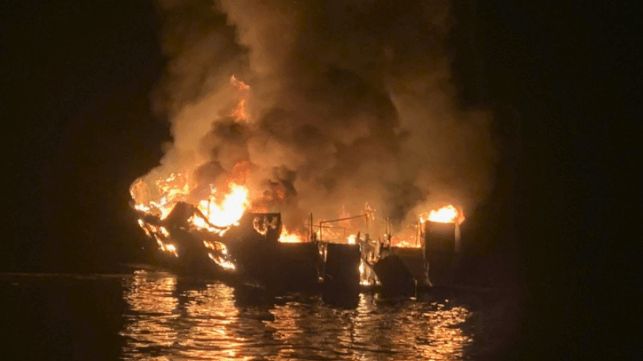Congressional Hearing Criticizes USCG on Small Boat Safety Regulations

Next week, two years after the disastrous fire aboard the dive boat Conception, the U.S. Coast Guard’s new rules for small boat safety finally go into effect. While the new regulations are recognized as an advancement, the U.S. Coast Guard is coming under heavy criticism by the National Transportation Safety Board and members of the U.S. Congress for being slow to act. During a Congressional Subcommittee hearing in California, the U.S. Coast Guard was criticized for being intransigent in its positions while the agency said it needed to be deliberate and consider the economic elements in establishing rules.
“It took congressional action to force the Coast Guard’s hand,” said U.S. Representative Salud Carbajal who chaired the House Subcommittee on Coast Guard and Maritime Transportation hearing on March 21 in California. The focus of the hearing was exploring progress on the Small Passenger Vessel Safety Act, which became law in January 2021. The hearing was held just miles from where the Conception bunt and sunk killing 34 passengers and crew on September 2, 2019.
As a result of the 2021 law, new rules go into effect next week requiring fire detection systems, dual escape routes from all areas of the vessels, and emergency drills. This is in addition to other Coast Guard efforts including requiring all small vessels to undergo annual inspections to ensure compliance, one of the areas the NTSB and lawsuits after the fire criticized the USCG for lax inspections. The Coast Guard noted that it added 126 new marine inspection vessels since 2019.
Despite the recent efforts, the criticisms focused on the slow implementation of recommendations and the failure of the Coast Guard to close safety gaps. The NTSB said it has 19 open recommendations regarding small vessel safety, some dating back 20 years. They noted repeatedly reiterating their recommendations citing the numerous accidents and loss of lives on small boats.
“Since 1999, we’ve investigated three accidents involving passenger ferries in New York, a deadly fire on the small passenger vessel Island Lady in Florida, and duck boat accidents in Arkansas, Pennsylvania, and Missouri,” said National Transportation Safety Board Chair Jennifer Homendy according to the Los Angeles Times. “Including the Conception, a total of 86 people died in these tragedies.”
Among the recommendations that Homendy said the NTSB has issued include expanding voyage data recorders to smaller passenger vessels and requiring preventive maintenance programs similar to those required for airplanes. The Coast Guard also admitted that a recommendation for devices to ensure that night watchmen remain on duty and do rounds on small boats will not be fully implemented in the current regulations.
Coast Guard Rear Admiral John Mauger responded to the comments, highlighting the safety programs enhanced by the USCG while also saying it was incumbent on vessel owners to create a culture of safety. He said they would be working with vessel operators to review their plans due next week to show how they will come in compliance with new requirements and for example, the USCG would begin doing spot checks to ensure proper watches were being maintained on operating vessels.
Pending in the U.S. Congress is a new bill that would overhaul the liability issues for small boat owners. The legislation advocated by the families of the Conception victims seeks to update a 170-year-old law that accesses liability in part on the value of the vessel. The families of the Conception victims also filed a wrongful death lawsuit against the U.S. Coast Guard for its failure to enforce safety rules that they said led to the disastrous fire.
